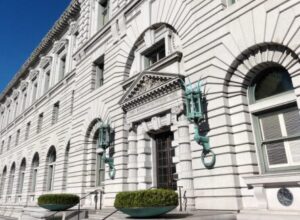
May 20, 2024
U.S. Supreme Court Ruling Offers Important Social Media Guideposts for Government Officials
In March 2024, the United States Supreme Court issued its decision in Lindke v. Freed, 601 U.S. 187 (2024), a case in which a city manager (Freed) blocked a constituent (Lindke) from his Facebook page and deleted some of the citizen’s comments on his posts. Lindke sued for First Amendment retaliation, arguing that Freed’s blocking and post deletions constituted state action. (The First Amendment prohibits only governmental abridgment of speech, not private abridgment.) The district court granted summary judgment to Freed and the Sixth Circuit affirmed, with both courts focusing on the absence of government involvement in managing Freed’s Facebook page, which he had personally created in college and maintained himself. The Supreme Court reversed, holding that a public official’s social media activity may be attributable to the state if (and only if) the official: “(1) possessed actual authority to speak on the State’s behalf, and (2) purported to exercise that authority when he spoke on social media.” The Court remanded the case for the district court to apply the announced standard.
While emphasizing that “the state-action doctrine demands a fact-intensive inquiry,” Justice Barrett’s decision for a unanimous Court offers some important guideposts—and warnings—for government officials using social media.
Authority to Speak for the Government
On the first prong (whether the official has actual authority to speak for the government), courts must pay “careful attention to the relevant statute, ordinance, regulation, custom, or usage” to determine whether the social media speech in question falls within the “scope of an official’s power.” The Court explained: “The inquiry is not whether making official announcements could fit within the job description; it is whether making official announcements is actually part of the job that the State entrusted the official to do.” As a “threshold” requirement of state action, the defendant “must have actual authority rooted in written law or longstanding custom to speak for the State,” and “[t]hat authority must extend to speech of the sort that caused the alleged rights deprivation.”
Post Content, Disclaimers, and the Exercise of Authority
Second, in addition to the official having authority to speak on the state’s behalf, the official must also claim to use that authority when speaking on social media. This is, the Court noted, a “fact-specific undertaking in which the post’s content and function are the most important considerations.” Disclaimers or labels—such as “the views expressed are strictly my own” or “this is the personal page of John Doe”—can give speech clear context and thus would “entitle[] it to a heavy . . . presumption that all of the posts on [the] page [are] personal.” That presumption, however, is “not irrebuttable.” So “an official cannot insulate government business from scrutiny by conducting it on a personal page,” such as a mayor “host[ing] a city council meeting online by streaming it only on his personal Facebook page.” That would still be state action.
On the other hand, an account that “belongs to political subdivision (e.g., a “City of Port Huron” Facebook page) or is passed down to whomever occupies a particular office (e.g., an “@PHuronCityMgr Instagram account),” would “make clear that [it] purports to speak for the government.” Another clear case of state action—a “slam dunk,” in the Court’s phrase—would be an announcement of a policy decision shared “exclusively” on a public official’s Facebook page, such as a mayor’s temporary suspension of parking rules. In contrast, if a public official “merely repeats or shares otherwise available information,” it would be “far less likely that he is purporting to exercise the power of his office.”
Risks of “Mixed-Use” Social Media Accounts
What made Freed’s account “hazier” than the Court’s hypothetical examples was that it was not designated as either “personal” or “official” and that he “made some posts in his personal capacity” (like family photos and Bible quotes) and “others in his capacity as city manager” (like the city’s pandemic response). Such “mixed use” accounts can pose considerable line-drawing challenges for both governments and courts. In such “[h]ard-to-classify cases,” courts should look for “additional factors,” including whether the official “uses government staff to make a post,” which would make it “hard . . . to deny that he was conducting government business.”
Although the Court did not telegraph on which side of the line this case will ultimately fall, it did note one additional consideration that may bode poorly for the city on remand: Because Freed both deleted certain of Lindke’s comments on his Facebook page and blocked him altogether from the page, the district court will “have to consider whether Freed had engaged in state action with respect to any [emphasis added] post on which Lindke wished to comment.” The Court explained that the “bluntness of Facebook’s blocking tool highlights the cost of a ‘mixed use’ social-media account,” as well as its risks: “A public official who fails to keep personal posts in a clearly designated personal account therefore exposes himself to greater potential liability.”
For questions the First Amendment and state action, or other constitutional matters, please reach out to any member of our Litigation team.


